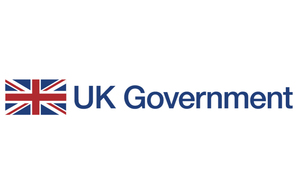- 95% mortgage guarantee launches today, available on high streets across the country
- Scheme part of a range of ownership options to help make home ownership a reality
- New figures show demand for home ownership has soared during lockdown, with nearly 80% of private renters now saving for a deposit
- Today’s launch further strengthens government commitment to supporting the housing sector
A new government-backed mortgage scheme to help people with 5% deposits get on to the housing ladder is available to lenders from today (19 April 2021).
First announced at the Budget, the scheme will help first time buyers or current homeowners secure a mortgage with just a 5% deposit to buy a house of up to £600,000 – providing an affordable route to home ownership for aspiring home-owners.
The government will offer lenders the guarantee they need to provide mortgages that cover the other 95%, subject to the usual affordability checks.
The scheme is now available from lenders on high streets across the country, with Lloyds, Santander, Barclays, HSBC and NatWest launching mortgages under the scheme today and Virgin Money following next month.
The government has made clear its commitment to tackling inequality in the housing market and levelling up the country. Official statistics show more homes were delivered in 2020 than in any year since 1987.
In 2019 a pledge to build 300,000 new and attractive homes a year was announced with an investment of over £12 billion in affordable housing over the next 5 years – the largest investment in a decade.
Since 2010, more than 663,000 households have been helped into home ownership through government schemes, but when asked, 69% of private renters and 63% of those living at home who had looked into a mortgage said they cannot find many mortgages with a low deposit. Today’s new 95% mortgage scheme will now make it even more accessible to own a home.
Housing Secretary Rt Hon Robert Jenrick MP said:
For too many people, no matter how hard they work, home ownership can seem out of reach. One of the biggest divides in our country has been between those who can afford their own home and those who cannot.
That’s why we are determined to do everything we can to help hard-working families and prospective first-time buyers get their feet on the housing ladder in an easy and affordable way, to level up this country.
The new mortgage guarantee scheme which comes into effect today will give providers the confidence to lend and help families and young people get on the property ladder without the prohibitive burden of a large deposit.
Despite the challenges faced over the past year, the government has intervened to protect jobs, support builders and buyers to help keep the housing market healthy. Today’s 95% mortgages launch further strengthens our commitment to build back better from the pandemic.
In recent years we’ve reversed the trend and seen a positive increase in owner-occupiers. We’re determined to build on this through the range of flexible ownership options which help ensure home ownership is achievable. We want to match the ambitions of aspiring homeowners up and down the country.
Together we can turn ‘Generation Rent’ into ‘Generation Buy’.
Chancellor of the Exchequer, Rishi Sunak said:
Every new homeowner and mover supports jobs right across the housing sector, but saving for a big enough deposit can be hard, especially for first time buyers.
By giving lenders the option of a government guarantee on 95% mortgages, many more products will become available, boosting the sector, creating new jobs and helping people achieve their dream of owning their own home.
Miguel Sard, Managing Director of Home Buying and Ownership at NatWest said:
We welcome the government’s new mortgage guarantee scheme to give further support to those with smaller deposits. For those customers, particularly younger or first-time buyers, saving up for a big deposit can often be difficult, and we know people in these groups are some of the hardest hit by the effects of the pandemic.
A government-backed scheme will help segments of the market for whom home ownership has felt far out of reach in recent months.
Mark Hayward, Chief Policy Advisor at Propertymark, said:
Over the past few months, there has been an increase in the number of prospective buyers and the number of house sales taking place. Coupled with the decision to extend the Stamp Duty holiday further, the Mortgage Guarantee Scheme will provide additional options for more people to become homeowners.
Access to finance and affordability plays a key role in the ability for people to purchase their dream home, so we are now very pleased to see further support for both first-time buyers and current homeowners looking to buy property or move up the housing ladder.
The scheme is one of a range of flexible home ownership options available. These include Help to Buy, Shared Ownership and the First Homes Scheme. Figures show that the number of mortgage approvals for house purchases in January 2021 was 99,000 – a 40% increase on January 2020.
Part of the government’s Plan for Jobs, the scheme will help to support the housing market and protect jobs and businesses across the housing supply chain, from housebuilders and estate agents, to tradespeople, DIY stores and removal firms.
The intervention comes as new figures published by the government show a greatly increased desire for home ownership and a sharp reduction in 95% mortgage availability over the past year.
The figures show that more than two-thirds of private renters (68%) and those living at home (72%) want to buy, with the majority saying the pandemic has made them more aware of the importance and benefits of home ownership.
The survey also found that 76% of private renters and 70% of those living at home have started saving for a deposit or put more money into their savings during the pandemic.
The delivery of more homes was also an integral part of the government’s most ambitious overhaul of the planning system in decades. The reforms will streamline processes, cut red tape and harness technology to deliver homes faster.
The government is committed to supporting people who aspire to become homeowners, helping over 685,000 households to purchase a home since 2010 through government backed schemes including Help to Buy and Right to Buy.
The COVID-19 pandemic has led to a reduction in the availability of high loan-to-value (LTV) mortgage products, particularly for prospective homebuyers with only a 5% deposit. This has left many hard-working households unable to get on to the housing ladder.
The mortgage guarantee scheme will support a new generation in realising the dream of home ownership, in line with the Prime Minister’s ambitions. This will enable more households to access mortgages, without the need for prohibitively large deposits.
The government will provide lenders with the option to purchase a guarantee on the top-slice of the mortgage. In other words, the government will compensate the mortgage lender for a portion of the net losses suffered in the event of repossession. The guarantee will apply down to 80% of the purchase value of the guaranteed property.
The guarantee will be valid for up to 7 years after the mortgage is originated, evidence shows that loans are unlikely to default after such a period has elapsed.
The scheme is intended as a temporary measure. It will be open for new mortgage applications from April 2021 to December 2022, in line with the government’s view that the current scarcity of high loan-to-value lending is primarily a response to the pandemic rather than a symptom of a longer-term structural change in the mortgage market.
The government will review the continuing need for the scheme towards the planned end date, and determine whether extending the period of eligibility for new mortgages would continue to deliver benefits for prospective home owners.
See more information on the mortgage guarantee scheme.
Quotes from other lenders involved in the scheme
Susan Allen, CEO Retail and Business Banking at Santander said:
We know that raising a large deposit can often be challenging for potential home buyers, so we’re pleased to be part of the government’s Mortgage Guarantee Scheme offering a range of 95% mortgages to help both first-time buyers and home movers.
As one of the UK’s largest mortgage lenders we see how important homeownership is to our customers and we use our wide experience and expertise to support them throughout the home buying process.
Michelle Andrews, HSBC UK’s Head of Buying A Home said:
We have supported home buyers and the wider housing market throughout the pandemic and are excited to support the Mortgage Guarantee Scheme.
After such a turbulent year it is great that this scheme will make a real difference in enabling first time buyers who didn’t think they would have a chance of getting a mortgage and home movers to get the keys to their new home.
Other government home ownership options available include
95% Mortgages: From today (19 April) first time buyers will be able to purchase a home with only a 5% deposit. The scheme will help to increase the supply of 5% deposit mortgages for credit-worthy households by supporting lenders to offer these products through a government-backed guarantee.
Help to Buy: A government equity loan that supports first time buyers with a low interest loan towards their deposit.
Shared Ownership: Gives first time buyers the option to buy a share of their home (between 25% and 75%) and pay rent on the remaining share.
First Homes: A new scheme designed to help local first-time buyers and keyworkers onto the property ladder, by offering homes at a discount of 30% compared to the market price.
Source
ResearchBods/MHCLG polling with private renters (age 20-44, HH income £20k+) n = 1,000, living at home (age 20-44, HH income £20k+) n = 250, parents (own a home, children 18–45, HH income £50k+) n = 500. Great Britain, fieldwork 1st-3rd April 2021. Weighted GB Gender.
Q4: If you had the means available, what would you choose?/If you had the means available to help them which of the following would you like your children to do (excluding those that already own a house)? Private renters n = 1,000 Living at home n = 250 Parents n = 500
Q15c: How do you expect property prices to change over the next… 1 – 12 months/1-2 years/2-5 years – Private renters n = 1,000 Living at home n = 250 Parents n = 500 (% prices will rise)
Q19: To what extent do you agree with the following statements about buying your first home/ helping to buy a home for your children? ‘The lockdown has really made me think home ownership is important’ (% NET: Agree with statement) Private renters n = 1,000 Living at home n = 250
Q10: Thinking about the last year, how much time have you put into thinking or searching about home-buying (for your family) compared to before the COVID-19 pandemic? % NET: More time (Asked all who have taken action to buy a home) Private renters n = 619 living at home n = 149
Q17: Which of these statements do you agree with regarding the current state of the mortgage market? ‘I can’t find many mortgages that require a low deposit (ie. Up to 5% of a home’s value) (Asked to those who have looked at or researched a mortgage) Private renters sample n = 207 Living at home n = 40 (% NET: Agree)
Q12: You said that you are saving for a deposit. During the Coronavirus pandemic would you say that: ‘Started to save for a deposit for the first time’ or ‘Increased your savings for a deposit more than before the pandemic’ (Asked to those who are saving for deposit) Private renters sample n =443, living at home n=111


